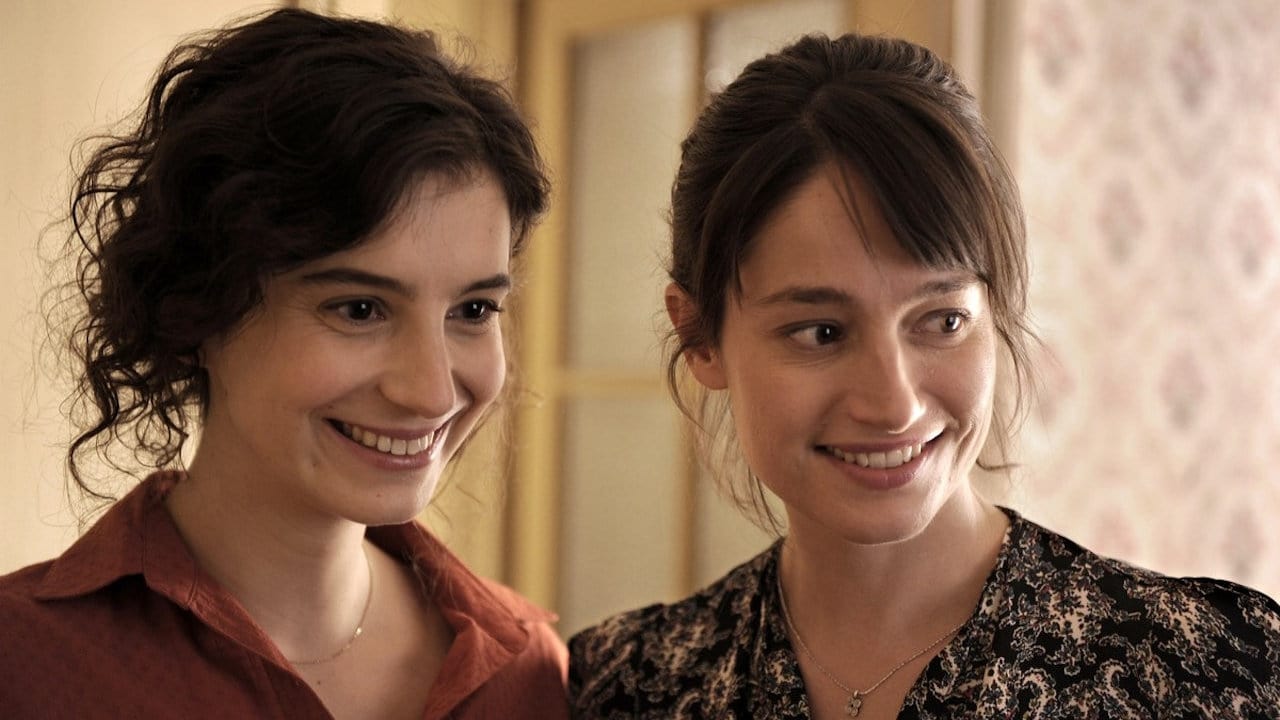


French screenwriter, producer and director Philippe Lioret's seventh feature film which he co-wrote with French actor, screenwriter and director Emmanuel Courcol and co-produced, is an adaptation of a novel from 2009 called "D'autres vies que la mienne" by French author, screenwriter and director Emmanuel Carrère. It premiered in the Venice Days section at the 68th Venice Film Festival in 2011, was shot on locations in France and is a French production which was produced by producer Marielle Duigou. It tells the story about a jurist named Claire Conti who has moved in to a new house in Lyon, France with her husband named Christophe who is a sauce chef and their daughter named Mona and son named Arthur. On an autumn day, Claire goes with her children to their kindergarten where she meets her daughter's friend named Zoe's mother named Céline Hersant. She then goes to court, and during the hearing of a case regarding a loan company's lawsuit against a woman she meets Céline again. Distinctly and eloquently directed by French filmmaker Philippe Lioret, this finely paced fictional tale which is narrated from multiple viewpoints though mostly from the two main characters' viewpoints, draws a quietly compassionate portrayal of a woman whom after a crucial meeting with her doctor becomes increasingly involved in the life of a woman whom has been left by the father of her children and befriends a judge named Stéphane who lives with his girlfriend named Marthe. While notable for its naturalistic and atmospheric milieu depictions, sterling cinematography by cinematographer Gilles Henry, production design by production designer Yves Brover-Rabinovici and costume design by costume designer Anne Dunsford, this dialog-driven and character-driven story about a woman's virtuous fight for another person and for moral justice against a capitalist-driven loan company called Crefiref, depicts two heartrending studies of character and contains a great score by Danish composer Flemming Nordkrog. This charmingly humorous, perceptively romantic and reflective drama which is set during an autumn and winter in a city in Southern France in the 21st century and where a French mother and wife whom has lived most of her life without a father-figure and whom is faced with a "verdict" she decides to master on her own, finds a precious human connection with a middle-aged father and rugby coach whom is missing his adult son and a single mother whom is struggling to support her three children receives help from two jurists who for once would like to see the ethical aspects of a case within the judicial system surpass the financial, is impelled and reinforced by its refined narrative structure, subtle character development, rhythmic continuity, acute examination of its central themes, scenes between Claire and Stéphane and the empathic and understated acting performances by Belgian actress Marie Gillain, French actor Vincent Lindon and actress Amandine Dewasmes. A graceful, whole-hearted and authentic narrative feature.
... View MorePhilippe Lioret is kind of the French Ken Loach, a director who best expresses his potential when he is depicting the hard reality. He proves it once again in this Toutes Nos Envies, a committed, social movie who deals with the last legal battle of a reserved Marie Gillain, resigned to dying, helped by the always excellent Vincent Lindon.The script, though relatively predictable, is well executed and most importantly it never falls into melodramaticism. Despite everything, and even if this drama turns out to be touching, it doesn't fully convinces either, due to a plot that sometimes drags on a bit too much and a direction too lazy. Too bad because if it wasn't for that, the movie would be close to a real success.
... View MoreThere is really nothing special about the story - a successful, young lawyer with a good career, two great children and a 'model' husband finds her life in peril upon the revelation of an incurable disease. We have seen stories like this before. However, 'All Our Desires' (I still think the title is not very relevant) is a film that works. It works because of the way the director tells the story, and the way the actors play out their roles and emotion.Nothing is over-the-top. The bonding between the two lead actors, with the age gap, is natural and admirable. One can still argue about the cliché of Claire withholding her illness from her husband but it was not too important. In the end I find the story to be moving, well told and engaging.This is my first exposure to films by Philippe Lioret. And it definitely will not be my last.
... View MorePhilippe Lioret is one of the rare sound technicians to have turned film director. And a pure technician he did not remain, becoming instead a full-fledged artist, slowly maturing from offbeat comedy maker ("Tombés du Ciel" [1993], "Tenue correcte exigée" [1997]) to successful painter of the passions ("Mademoiselle"[2001], "L'équipier"[2004]). A new step was taken in 2006 with "Je vais bien ne t'en fais pas", one of the most intense dramas ever filmed, which propelled him to the status of key figure of the French cinema. Lioret's following work, "Welcome", released three years later, a model of the committed film genre, confirmed the high hopes placed in the director, whose last two films managed to convince both audiences and film critics. In "Toutes nos envies", his latest work to-date, Lioret this time tries to synthesize the separate driving forces of his two masterpieces (intimate drama and social involvement) in a single story. On the personal tragedy side, he tells us the sad story of Claire, an idealistic judge in her thirties, married to a sweet husband and mother of two, who discovers to her dismay that she is struck by an incurable illness. As for sociological aspect of the movie, it lies the fight the young judge wages against revolving credit, and by extension, against the aberrations of ultra- liberalism.Choosing to deal with a societal phenomenon through the eyes of a young woman of course allows identification to her and, through this process, easier understanding of a complex issue. But, taking as a heroine a young woman who can see herself dying was certainly not an obvious choice, the danger being of indulging in cheap melodrama. Fortunately, Philippe Lioret knows better than that : "Mademoiselle", "L'équipier", "Je vais bien..." and "Welcome" could have been tearjerkers ; they were not. Nor is "Toutes nos envies". Simply because for the director suffering elevates the person who fights it with dignity. Whereas in a mere tearjerker it is just an excuse for drawing crocodile tears from undemanding viewers ; and this at the expense of the characters, debased to the level of whiners. For that matter, he was quite right to offer the role to Marie Gillain, a charming actress who, although not used to playing such tragic characters, manages here to display a lot of conviction while at the same time showing welcome (pun not intended !) restraint. At once fragile and strong, fresh and grave, rebellious and warm, Marie Gillain joins the vibrant Sandrine Bonnaire and Mélanie Laurent in the pantheon of Philippe Lioret's heroines.Claire, Philippe Lioret's engaging spokesperson, elegantly voices the writer-director's outrage at the way people in need of money are squeezed dry and driven to despair by lending organizations, thus making tremendous profit out of their poverty. This revolting situation is denounced from the outside by Claire but also experienced in her own flesh by Céline, a divorced mother and helpless victim of what can be called the new usurers (a very natural performance by Amandine Dewasmes).A very skillful way to study the questions from all angles, from the theoretical legal point of view to the everyday practical one. So much so that, unless you are a loan shark yourself, you cannot but side with the victims of the system while capturing all its intricacies.The direction is effective but without inadequate artistry, making good use of natural locations (Lyon, Valence, the Salagou Lake). The cast is superior, with Vincent Lindon as its male star. In "Toutes nos envies" he gives another of his superb performances as Stéphane, a judge who has seen it all and proves reluctant to take action but until, out of sympathetic friendship for Claire, he accepts to take over her mission. A fine example of social commentary with a heart, "Toutes nos envies" has met its two fixed targets : to move viewers on the one hand and raise their awareness on the other.
... View More